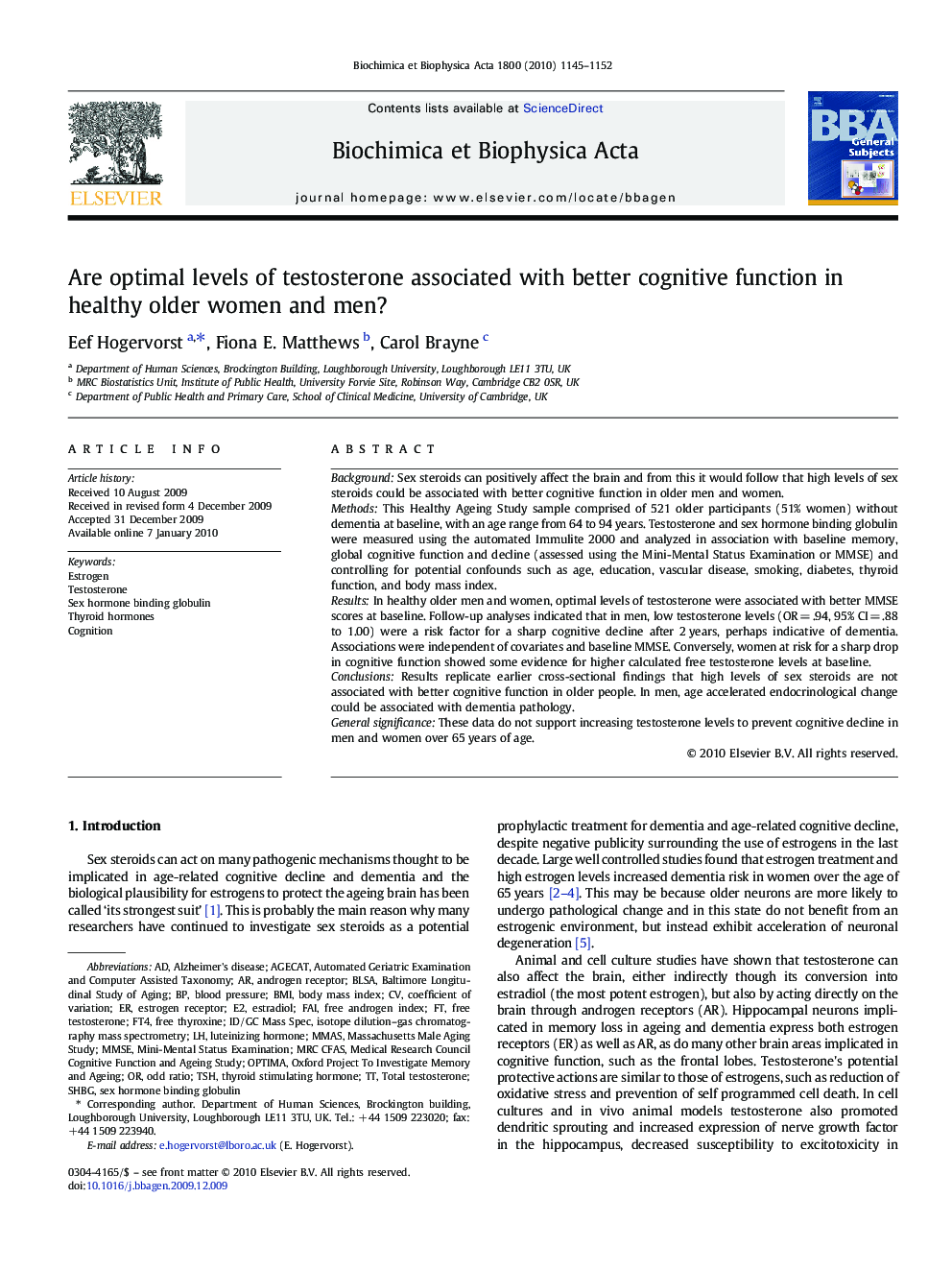| Article ID | Journal | Published Year | Pages | File Type |
|---|---|---|---|---|
| 1947883 | Biochimica et Biophysica Acta (BBA) - General Subjects | 2010 | 8 Pages |
BackgroundSex steroids can positively affect the brain and from this it would follow that high levels of sex steroids could be associated with better cognitive function in older men and women.MethodsThis Healthy Ageing Study sample comprised of 521 older participants (51% women) without dementia at baseline, with an age range from 64 to 94 years. Testosterone and sex hormone binding globulin were measured using the automated Immulite 2000 and analyzed in association with baseline memory, global cognitive function and decline (assessed using the Mini-Mental Status Examination or MMSE) and controlling for potential confounds such as age, education, vascular disease, smoking, diabetes, thyroid function, and body mass index.ResultsIn healthy older men and women, optimal levels of testosterone were associated with better MMSE scores at baseline. Follow-up analyses indicated that in men, low testosterone levels (OR = .94, 95% CI = .88 to 1.00) were a risk factor for a sharp cognitive decline after 2 years, perhaps indicative of dementia. Associations were independent of covariates and baseline MMSE. Conversely, women at risk for a sharp drop in cognitive function showed some evidence for higher calculated free testosterone levels at baseline.ConclusionsResults replicate earlier cross-sectional findings that high levels of sex steroids are not associated with better cognitive function in older people. In men, age accelerated endocrinological change could be associated with dementia pathology.General significanceThese data do not support increasing testosterone levels to prevent cognitive decline in men and women over 65 years of age.
